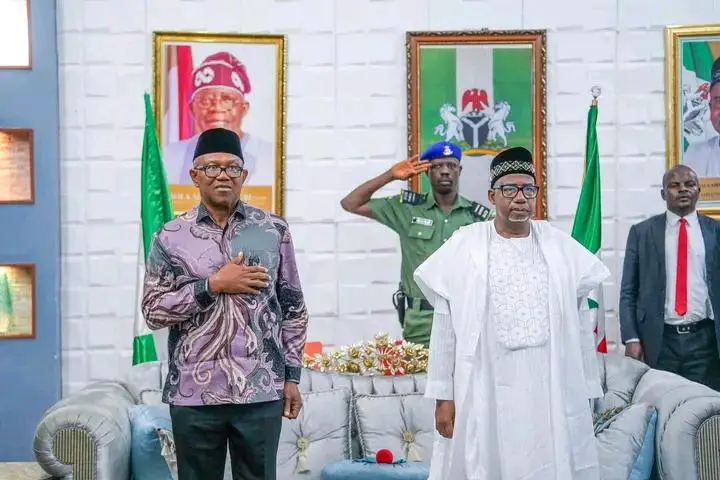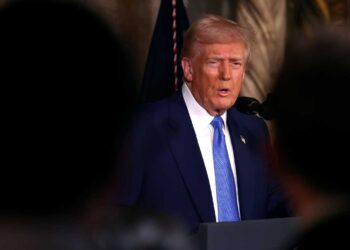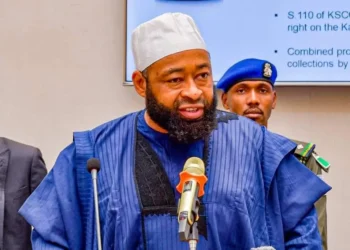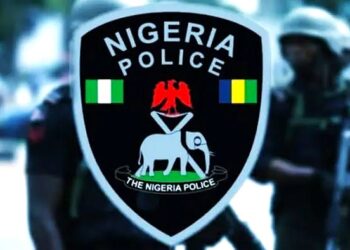Peter Obi’s Political Freedom: Why Every Discussion Matters
As Nigeria’s political landscape heats up ahead of the 2027 elections, political figures are actively engaging in discussions, forming alliances, and making strategic moves. One of the most talked-about figures in this dynamic space is Peter Obi, the former Labour Party presidential candidate. His recent meeting with Governor Bala Mohammed of Bauchi State has sparked conversations about his political direction, with some questioning his motives.
However, Chuks Ibegbu, the former spokesperson of Ohanaeze Ndigbo, has come forward to affirm Obi’s right to engage in political dialogue. According to Ibegbu, there is nothing wrong with Obi holding meetings with political leaders from any part of the country, as long as the discussions are in the national interest. This statement comes amid growing speculations about political realignments ahead of the next general elections.
Political Discussions for National Development
In a country facing multiple challenges, from economic instability to insecurity, political dialogue should be encouraged rather than criticized. Political discussions play a vital role in shaping policies, forming alliances, and ensuring governance that reflects the people’s needs.
Ibegbu stressed that Nigeria’s politicians must put national interests above personal or regional considerations. He reiterated that meaningful discussions among leaders can lead to positive policy decisions and stronger governance structures.
Obi has consistently presented himself as a leader who prioritizes national development, transparency, and accountability. His willingness to engage with leaders from different political backgrounds aligns with his vision of inclusive governance. Whether his recent meetings are a sign of a new political strategy or just routine discussions remains to be seen.
The Growing Political Climate in Nigeria
With the 2027 general elections approaching, Nigeria’s political scene is becoming increasingly dynamic. Politicians are making strategic moves, testing alliances, and preparing for what promises to be another fiercely contested election. The coming years will be filled with political maneuvering, endorsements, and campaign strategies.
Obi’s political engagements are occurring at a time when political alliances are shifting. While some politicians are reaffirming their loyalty to their current parties, others are considering cross-party collaborations to strengthen their chances in the next election. Nigeria’s democracy thrives on political engagement, and Obi’s meetings should be seen as part of this evolving landscape rather than an unusual event.
Tinubu’s Second-Term Endorsement Sparks Reactions
Meanwhile, President Bola Tinubu has received endorsements for a second term from notable political figures, including Senator Orji Uzor Kalu and Minister of Works, David Umahi. Their public support for Tinubu’s re-election bid has stirred conversations about the political direction of the country.
While endorsements are a common political tradition, they often reflect personal or strategic interests rather than widespread public support. Many Nigerians remain divided on Tinubu’s performance and whether he deserves another term in office.
Ibegbu, in his statement, pointed out that political endorsements do not necessarily translate to electoral success. He noted that while politicians may support certain candidates, the final decision will always rest with the Nigerian electorate.
Nigerians Hold the Ultimate Decision
Regardless of endorsements or political alliances, the power to decide the country’s leadership lies with the people. As Ibegbu rightly pointed out, Nigerians must remain politically aware and active, ensuring that their votes reflect their true aspirations.
“While it is their right to take such positions, the Nigerian electorate will ultimately determine their political future in the years ahead,” he remarked. This statement underscores the importance of voter participation in shaping the future of Nigeria.
Elections in Nigeria have often been influenced by factors such as party loyalty, regional interests, and economic conditions. However, with increased political awareness, more Nigerians are beginning to demand accountability and transparency from their leaders.
Igbo Political Leaders Must Prioritize Their People
Turning his attention to Igbo political leaders, Ibegbu urged them to ensure that their actions align with the true interests of their people. He emphasized that political credibility is built on genuine representation and service rather than personal ambition.
According to Ibegbu, the political influence of Ndigbo will only be respected when their key leaders act with unity and purpose. Over the years, there have been concerns that Igbo political leaders are not presenting a united front in national politics. If they are to have a greater impact on Nigeria’s political future, they must prioritize collective goals over individual aspirations.
The Need for Political Integrity and Transparency
Ibegbu further stressed the need for political integrity among Nigerian leaders. He noted that politicians must act with transparency, ensuring that their decisions genuinely reflect the needs of the people rather than personal or financial interests.
The 2027 elections will serve as a test of Nigeria’s democracy, and leaders must ensure that the electoral process is credible, free, and fair. Political transparency, voter education, and democratic accountability will play a crucial role in shaping the country’s future.
With the right leadership and a commitment to good governance, Nigeria can overcome many of its challenges. Political discussions, alliances, and endorsements should always be weighed against their potential to drive positive change rather than serve individual interests.
The Road to 2027 Elections: The People Will Decide
As Nigeria prepares for another election cycle, the political landscape will continue to evolve. The key takeaway from Ibegbu’s statement is that politicians must remain accountable to the people. Endorsements, alliances, and political meetings may shape the conversation, but ultimately, Nigerians will decide their future at the polls.
For democracy to thrive, voters must remain engaged, informed, and willing to hold their leaders accountable. The road to 2027 is still long, but the conversations happening today will play a significant role in determining what happens when Nigerians cast their votes.












